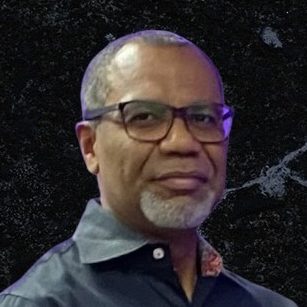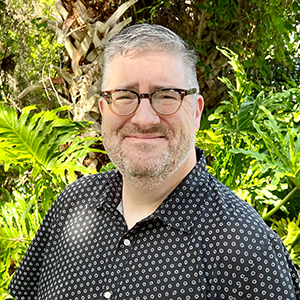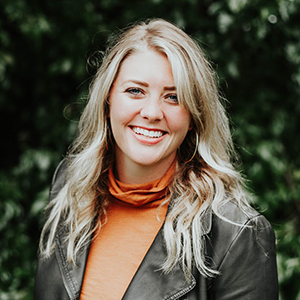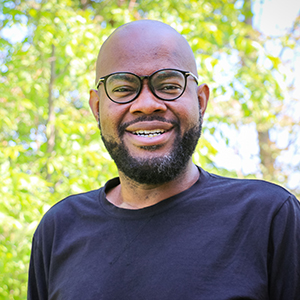The General Synod Council (GSC) ministry staff is coming together as a more nimble, unified team that continues to equip church leaders, congregations, and classes. This new structure—initially announced last spring—has evolved as a response to changing ministry needs and staff capacity, applying creativity and strategy to better listen, respond to, and equip classis and church leaders. GSC ministry staff has been aligned accordingly, with three directors and a supervisor recently appointed.
“Some believe the RCA is in a deep crisis that will somehow spell its end,” says Rev. Sung Kim, the RCA’s chief operating officer. “I believe that it’s in the midst of crisis that opportunities are born and great leaders and movements emerge. For me, this is an opportunity to lead the vision for what the RCA will look like for the next 400 years.”
The new team is called “the center,” officially, the Center for Church Multiplication and Ministry. It encapsulates the work of Transformed & Transforming, Church Multiplication, and Race Relations and Advocacy. RCA Global Mission will remain a separate team within the GSC staff structure.
The vision for the center
The core of the center is church multiplication and church ministry. Church multiplication is the work of starting churches; church ministry is the work of strengthening churches in areas of discipleship, leadership, and local mission (Transformed & Transforming). The work of these teams is conjoined with the future church and diversity and inclusion work of the GSC staff.
“We’re envisioning the win of collaboration and creating a common understanding and approach to equipping and resourcing churches and leaders,” says Kim. “It’s saying, ‘Let me bring along this person [as a partner and an expert].’ It’s Liz Testa [coordinator for women’s transformation and leadership] working with Chad Farrand [director of church multiplication] to raise up more women church planters. Everyone is coming together with a common vision and goal.”
The future church aspect of the center is focused on innovation and seeing around corners, being faithful to the church today but also to the next generations of the church, Kim says. The diversity and inclusion team focuses on incorporating disciples and leaders of every race and language, equipping women and men to lead, and ensuring that people of all abilities are welcomed and able to serve in the church. All of this work undergirds the work of strengthening and starting churches.
“Supporting our churches and classes is so important,” says RCA general secretary Eddy Alemán. “We are committed to that work, even though how we provide that support is shifting because of a changing environment. We are committed to working with RCA classes, established churches, and new church plants, to support them as they make disciples who make disciples.”
What’s different about the center
The role of GSC staff, particularly for those who work with the center, is shifting from creators to curators and connectors. Rather than creating tools and resources, staff will connect RCA churches and classes to existing resources and tools from partners that can help them in ministry. This shift highlights the denomination’s value on relationships and enables GSC ministry staff to better listen to leaders and help connect them to the expertise and resources they need. It also allows staff to resource for a wider range of ministry needs.
A second shift in staff focus places connection with classes and networks at the forefront. Partnering with local classes leverages the responsibilities of the classis, which oversees all consistories and ministers within its bounds. (This includes ordaining, installing, and overseeing ministers and commissioned pastors; receiving and organizing new congregations; and overseeing students who are studying to become ministers in the RCA.) With classes and networks as the primary partner, churches are equipped in community—though instead of forming new communities, now they will more often be equipped and equipping in a community they are already a part of, such as the local classis or one of the RCA’s racial/ethnic councils. This approach also allows ministry staff to work with more churches than when they are consulting one-on-one.
“We’re excited to connect with classis clerks and classis leaders and to come alongside them,” says Kim. “We’re focusing on connection so that we can partner with what God is already doing in our churches and classes.
“We’re here and ready to help,” he adds, saying there will be no formal launch of the center. “Connect with us!”
Email equip@rca.org if your church or classis would like support and resources in discipleship, leadership, mission, multiplication, and advocacy.
Meet the staff
The center was initially announced in the spring, and GSC staff has been realigned for the unified team. Three directors and a supervisor lead the center’s staff, supported by coordinators, specialists, and a team of administrative assistants. Sung Kim, the RCA’s COO, oversees the work of the center.

Rev. Dr. Fredy Aviles
Director of church ministry
Fredy recently joined the GSC staff, beginning his work as director of church ministry on November 1. He brings many years of experience working in the local church context. He is the founding and lead pastor of Centro de Vida, an RCA church in Florida that was organized in 2020. Fredy also serves on the executive team of Classis de las Naciones, focusing on the classis’s teaching pathway for new ministers and commissioned pastors. Prior to starting Centro de Vida, Fredy served as a pastor, community director, and media coordinator. He is an ordained minister of Word and sacrament in the RCA; he holds a doctorate of philosophy in theology and apologetics and a master’s in religious education.
“I’m very excited about the opportunity to bring a pastoral perspective and experience to classes and our local churches [to connect] pastors with the [resources] they need,” says Fredy. “This position is giving me the path to work with classes and local churches to develop leaders [and equip them with] material that is available to them.”

Rev. Chad Farrand
Director of church multiplication
Chad is passionate about making disciples and multiplying and strengthening congregations. He joined the RCA in 2005 as a church planter with a network of house churches called Tapestry Network. He has been active in church multiplication ever since. In 2019, Chad moved from Michigan to Florida to help build the RCA’s newest classis, Classis de las Naciones, which has since grown from four churches to seventeen organized congregations. He is currently pursuing a DMin in Missiology: Global Christianity through New Brunswick Theological Seminary in New Brunswick, New Jersey.
Chad previously served on GSC staff as coordinator for discipleship. He rejoined staff earlier this year as associate director of Church Multiplication. Upon Rev. Dr. Randy Weener’s retirement, Chad became director of church multiplication on October 1.
“We have needed a holistic approach to serve our classes, and by working together as one team, the center may be able to walk alongside our classes more effectively than ever before,” says Chad. “Our team can integrate revitalization for congregations that also serves to lift up the next generation, empower and deploy women, and assist with all disability concerns while coaching for effective leadership that addresses racism and embraces strategies for strengthening and multiplying Reformed congregations.”

Rev. Annalise Radcliffe
Director of future church innovation
Annalise felt called to ministry at a young age. She studied English at Hope College and holds an MDiv from Western Theological Seminary. Annalise is planting co-pastor at City Chapel in Grand Rapids, Michigan, and she is passionate about all generations of leaders finding belonging in church. Prior to this role, she served as the RCA’s coordinator for Next Generation Engagement. Before that, she helped churches with discipleship efforts and served briefly as coordinator for the office of the general secretary.
“The center’s work will strive to meet the needs of leaders as we all adapt to changing needs and living out faith in a world post-pandemic. The way people choose to gather, the emphasis of the current moment and how Scripture interacts with those things, the adaptation of the church in the world today—these things are all informed by innovation and art,” says Annalise. “The work of future church is to specifically identify, gather, and share more broadly the innovations that are emerging in the church today. Much like in the early 1960s with the emergence of small group ministry, we are working to help ministries contextualize to their current environment and learn from other contexts to try new things, all to help faithfully steward the kingdom of God in the world today.”

Pastor Jeremy Simpson
Supervisor of race relations and advocacy
Jeremy describes himself as a theologian and culture maker who believes that Christian communities should be a foretaste of the reconciled Kin-dom of God. He is a pastor, musician, speaker, consultant, and strategist who brings over 20 years of ministry and non-profit experience to his role as supervisor of race relations and advocacy. He is the CEO and founder of Pursuit Community, which builds reconciling, unified communities through diverse worship, and serves as a coach for diversity and inclusion with Western Michigan University’s campus ministries. Jeremy is certified in diversity and inclusion (Cornell University) and in urban pastoral ministry (Western Theological Seminary). He has previously served the RCA as a commissioned pastor and is currently pursuing a master’s in theological studies from Western Theological Seminary. Jeremy joined GSC staff on October 10.
“I’m excited to see the church become an institution of healing and reconciliation, for us to truly live into our call to be free from racism, classism, sexism, and ableism. I’m excited to see how we’ll live into Revelation 7:9,” says Jeremy. “I’ve been involved in ministry since I was a child, and the ministry of reconciliation always looked siloed. Diversity is more than just seeing different people represented; it’s asking, ‘How do we express hospitality in a way that shows our heart for God and for each other?’”
Pastor Pete Watts, the previous supervisor of Advocacy and Race Relations, continues to serve on GSC staff, as the coordinator for the African American Black Council.
The rest of the team
Within the restructuring of the center, GSC ministry staff continue serving in their roles of expertise. Pastor Rodrigo Cano and Rev. Dr. Andres Serrano serve as church multiplication catalysts. Rev. Liz Testa and Rev. Terry DeYoung continue their advocacy and inclusion work for women and people with disabilities, respectively. Ruth Langkamp and Shelley Henning offer support for churches and classes in engaging the next generation and discipling children. Rev. Laura Osborne offers support and connection in interreligious relations.
Supporting the work of the center is an administrative team, led by Tricia Bouma, operations and communications manager. Tricia previously served as the operations manager for Church Multiplication and before that, as the stated clerk for Great Lakes City Classis. Erika Fleming, Dawn Muller, and Lorraine Parker serve as administrative assistants for the center.
Connect with the center’s staff at equip@rca.org.





